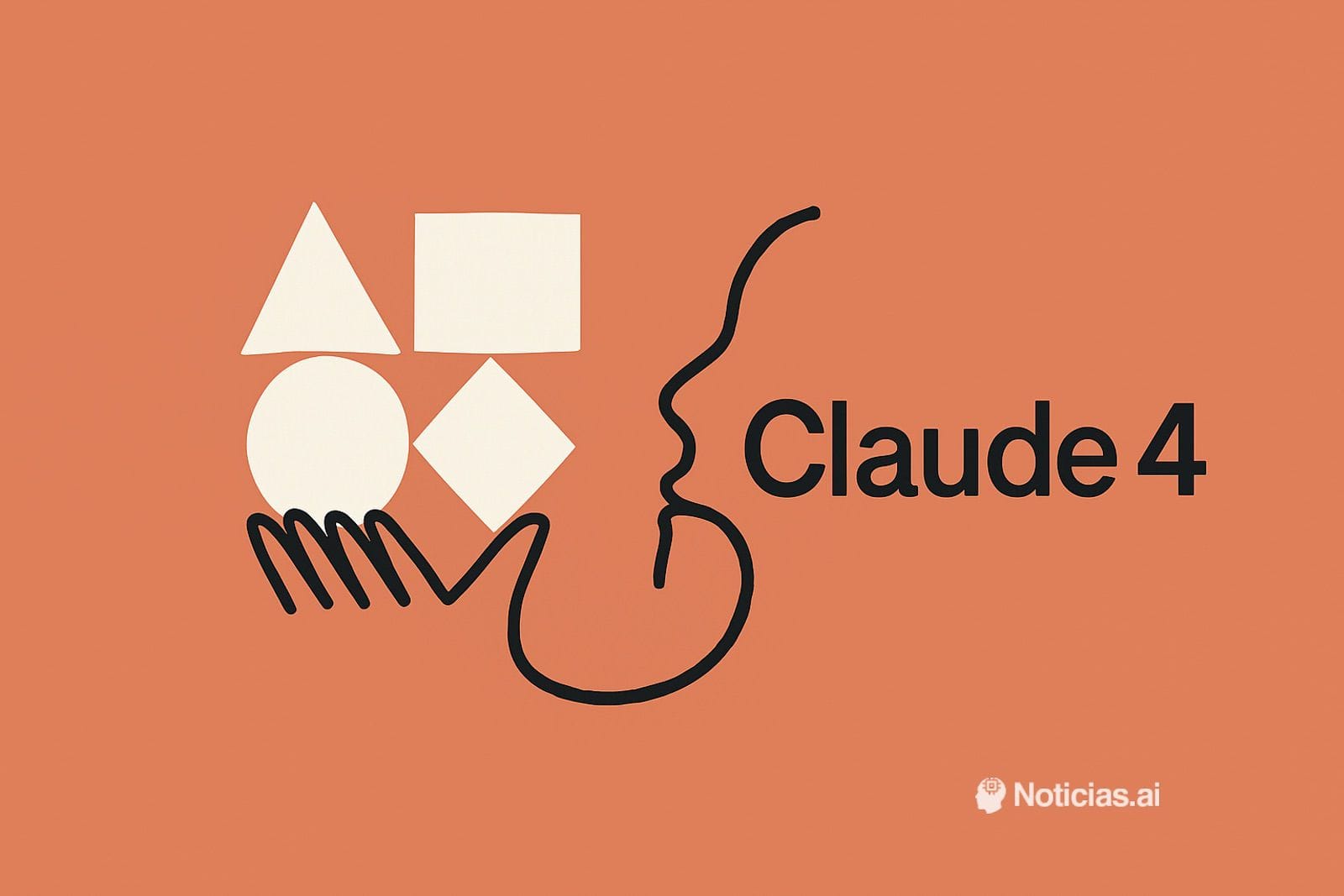Sure! Here’s the translation:
—
With the Opus 4 and Sonnet 4 models, Anthropic presents its biggest advancement to date in coding, complex reasoning, and prolonged use of external tools.
Anthropic has announced the release of Claude 4, the new family of language models that includes two enhanced versions: Claude Opus 4 and Claude Sonnet 4. Both models represent a qualitative leap in the development of artificial intelligence agents, particularly in advanced programming tasks, complex problem-solving, and autonomous execution of long-term actions.
The new flagship model, Claude Opus 4, has been described by Anthropic itself as “the best coding model in the world”, while Sonnet 4 represents a more efficient and accessible evolution, available even to free users.
Opus 4: Elite performance for complex tasks
Claude Opus 4 has topped several key industry benchmarks. It stands out for its ability to maintain stable performance in tasks lasting several hours, making it an ideal tool for demanding workflows.
- 72.5% on SWE-bench (a software engineering benchmark).
- 43.2% on Terminal-bench, with improvements in code navigation and structured reasoning.
- Validated implementation in real environments: Replit, Cursor, Rakuten, and Block are already using it for complex editing tasks and continuous refactoring.
Sonnet 4: Balance between power and efficiency
Claude Sonnet 4 inherits the robustness of its predecessor, Sonnet 3.7, but with improvements in accuracy, instruction tracking, and code navigation. Its performance in SWE-bench reaches 72.7%, nearly on par with Opus 4.
Organizations like GitHub will integrate it as the primary model in their new Copilot agent, highlighting its reliability, control, and adaptability to real development environments.
Enhanced features and tool usage
Both models include new features that reinforce their capabilities as autonomous intelligent agents:
- Extended thinking with tool usage (in beta): the models can switch between internal reasoning and using tools like web searches.
- Parallel tool execution: accelerating the resolution of distributed problems.
- Improved memory: when they have access to local files, they can create “memory files” with key information to maintain continuity. For example, Claude Opus 4 demonstrated this function by generating a contextual guide while playing Pokémon Red.
- Reduced shortcuts and traps: a 65% decrease in the tendency to solve tasks in an artificial or improper manner compared to previous models.
Claude Code: Integrated and collaborative development
Alongside Claude 4, Anthropic officially launches Claude Code, a tool designed to integrate directly into development environments like VS Code or JetBrains, where users can see Claude’s suggestions directly over their files.
Additionally, the company releases an SDK for building custom agents and a GitHub plugin that allows using Claude to review code, fix errors in continuous integration, or apply enhancements directly in pull requests.
Accessibility, API, and pricing
Claude 4 models are available starting today on:
- Anthropic API
- Amazon Bedrock
- Google Cloud Vertex AI
Pricing plans remain:
- Claude Opus 4: $15/million input tokens and $75 output.
- Claude Sonnet 4: $3/million input and $15 output.
Claude Sonnet 4 is also available for users on the free plan, while advanced features and Opus 4 require Pro, Max, Team, or Enterprise plans.
Towards a collaborative, safe, and prolonged AI
Claude 4 marks a step toward Anthropic’s vision of an AI as a virtual collaborator: capable of maintaining focus during long sessions, building tacit knowledge over time, and acting safely. Both models have been trained under enhanced safety criteria (ASL-3) and are ready to integrate into professional workflows without compromising control or privacy.
With Claude Opus 4 and Sonnet 4, Anthropic aims not only to compete with giants like OpenAI or Google but to lead a new generation of reliable, efficient, and development-oriented AI tools.

